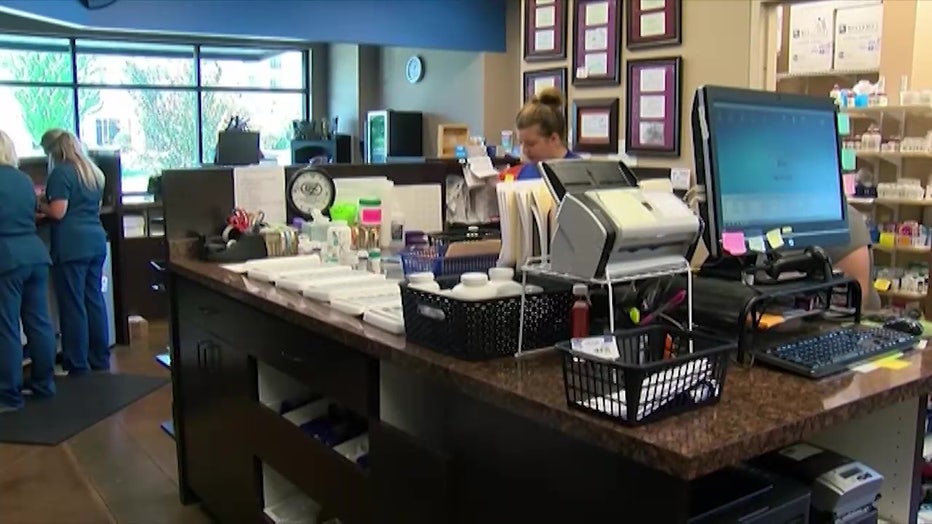Expert says national shortage of pharmacists could limit access to care and impact medical patients

Expert says national shortage of pharmacists could impact patients
Staffing shortages is an issue many industries and companies have been facing as a result of COVID-19, but experts say a shortage in the pharmacy sector could have negative impacts for patients. FOX 10's Marissa Sarbak reports.
PHOENIX - Amid a national shortage of pharmacists, we have been hearing more reports of local pharmacies closing down on certain days as a result of short staffing.
Staffing shortages is an issue many industries and companies have been facing as a result of COVID-19, and experts within the pharmacy industry say the number of people applying going to pharmacy school can affect pharmacies and those in the industry.
As the shortage continues, those who suffer the most will be patients.
"I think the biggest effect that you see in a pharmacist shortage, or any healthcare profession shortage, nurses, physicians anyone else, is really with patient care," said Michael Dietrich, Associate Dean of Professional Affairs with the Midwestern University College of Pharmacy.
Dietrich says they are already noticing a lull in applications, which just exacerbates the shortage.
"Pharmacists are the most accessible healthcare professional out there," said Dietrich. "They’re available. You don’t have to have any appointment. You can walk in and chat with a pharmacist, but if that pharmacy can’t open or has limited hours, they may limit access to care, and it's really going to impact the patient.
Dietrich says the demand for pharmacists is increasing, but so are the job requirements.
"It’s providing pressure on the system with more prescriptions, less time to do them. There’s a little bit of burnout on the pharmacy end, and you’re seeing people burn out of the field or retire," said Dietrich.
A spokesperson for Walgreens confirm that they are experiencing staffing challenges company-wide. The spokesperson said, in part:
Currently, there are fewer pharmacists, and the need for them is greater than ever.
"The real impact is going to be on patient care, and we don’t want to see that," said Dietrich.
Dietrich said they have seen this same problem years ago. He also said we will see a resurgence of high-quality applicants, so the problem should correct itself in a few years.
Other Health Stories
- Monkeypox won't turn into a pandemic, WHO expert believes
- Many of us have a vitamin D deficiency and don't know it, researchers say
- Study finds greener cities could benefit human health, save thousands of lives


